Search Results
Showing results 21 to 40 of 134
Many Seeds: Estimating Hidden Seeds
Source Institutions
In this activity, learners will estimate how many seeds are in a fruit or vegetable, then count to find out. The result: mix estimation with healthy eating.
Fair Shares: Predict Equal Shares
Source Institutions
Use this activity to build division and number sense into any snack time or whenever there is a limited set of things to share among a group: If we deal these out, could everyone get two pieces?
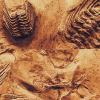
Familiar Fossils
In this activity, learners explore different types of fossils by making their out of dough and objects from around the house.
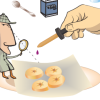
Iodine Investigators!
Source Institutions
In this activity on page 7 of the PDF (Chemistry—It’s Elemental), learners use iodine to identify foods that contain starch.
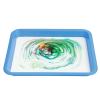
Milk Magic
Source Institutions
In this activity, learners experiment with how dish soap and fat interact by making a colorful swirl.
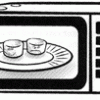
Monster Mallows
Source Institutions
In this activity, learners explore how ordinary marshmallows expand when heated in a microwave.
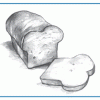
Chemical Reactions in Your Mouth
Source Institutions
In this chemistry activity (page 5 of the PDF), learners will see that chewing is more than just the crushing up of food; there is actually a chemical change going on at the same time.

Color Splash
Source Institutions
In this activity, learners mix water, cooking oil, and liquid food coloring to create beautiful colored designs in a cup. Use this activity to explore liquid density and solubility.
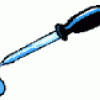
Supercooled Water Drops
Source Institutions
In this activity, learners touch supercooled water drops with an ice crystal and trigger the water drops to freeze instantly.
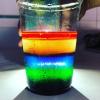
Density Rainbows
Source Institutions
In this activity, learners explore the concept of density by pouring 5 different liquids into a jar. Food coloring is added if needed to give each liquid a distinct color.

The Amazing Water Trick
Source Institutions
Using two baby food jars, food coloring, and an index card, you'll 'marry' the jars to see how hot water and cold water mix.

Edible Earth
Source Institutions
In this activity, learners make a model of the solid Earth's layers that's good enough to eat! Learners use tasty foodstuffs to simulate Earth's inner core, outer core, mantle, and crust.

Smell the Maillard Reaction
Source Institutions
In this activity, learners cook amino acids and sugar to explore the range of aromas released.

Hollandaise Sauce: Emulsion at Work
Source Institutions
In this activity, learners follow a recipe to make hollandaise sauce. Learners discover how cooks use egg yolks to blend oil and water together into a smooth mix.
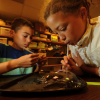
Soap Bubble Art
Source Institutions
Capture soap bubble patterns on paper! In this activity, learners can create beautiful pictures from popping soap bubbles.
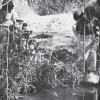
Crawdad Grab
Source Institutions
In this outdoor, freshwater activity, learners explore the behavior and food preferences of crawdads (or crabs) by "fishing" for them with various baits.
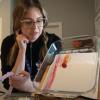
Sweet Speedway
Source Institutions
In this activity, learners test different food items by timing how long it takes each liquid to slide from the top of a ramp to the bottom.

Surface Tension
Source Institutions
In this activity exploring liquid dynamics, learners design and build a clay channel in a tray of water and then see what happens when food coloring and liquid soap are added to the mix.
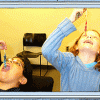
Grow Rock Candy
Source Institutions
Learners grow sugar crystals (rock candy). They make a hot solution that has an excess of sugar dissolved in it, then as the solution cools, they see sugar crystals form.
Double or More
Source Institutions
Choose a recipe to double (or triple, quadruple, or halve). Show everyone the recipe and engage them in figuring out: How much will we need to increase the recipe to feed everyone?
